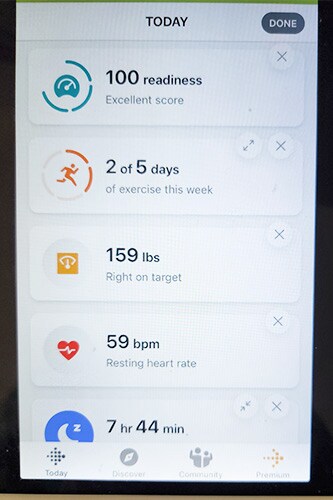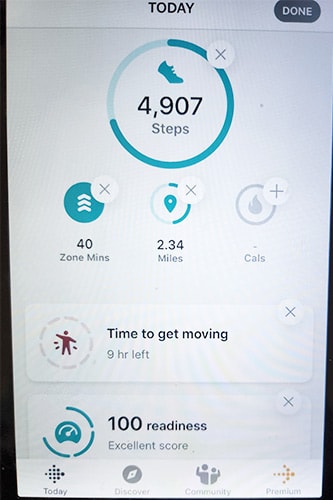
How to live to a ripe old age:
Choose ancestors that do/did not die of natural causes in young adulthood or middle age (sorry, too late to choose);
Never, ever inhale tobacco smoke life-long;
Maintain a body mass index within a "healthy range" using a variety of tools;
Maintain a blood pressure within a "healthy range" with or without medications; and
Maintain a low resting heart rate,
and you will likely live to a ripe old age. Those actions alone may suffice.
We all die. Dust to dust. Just a matter of why, when, and how.
As a journalist, husband, father, and grandfather, I probably care most about quality of life. As a physician and forensic pathologist, I care a lot about length of life and quality of death.
We can each control a lot about our quality of life and both our length of life and parameters of dying, by our volitional actions.
Here are some details along the way that could help (on average) us to "ripen" slowly and nicely and may be decisive (with many individuals and situations). I have not added references or links, although there is solid evidence supporting most of my assertions.
Food and Drugs
Do not consume sugar, either added to anything, in home-cooked or restaurant meals, in soft drinks, fruit juices, pastries, desserts, or processed foods.
Do eat whole grains, including bran.
Do consume above-ground, leafy vegetables, some root vegetables, tree nuts and peanuts, and berries.
Do ingest supplemental fiber, such as psyllium husks.
Do ingest daily supplemental magnesium, and possibly vitamins K2, C, and D.
Don't fret about consuming animal and vegetable fats (except no trans fats), including milk, cheese, meat, poultry, seafood, and eggs; enjoy yourself in moderation.
Two full meals a day and no between-meal snacking is best.
Do drink alcohol, but not before 5:00 PM, and don't binge.
Never, ever use "street drugs."
Do not use natural or synthetic opioids for anything except short-term relief of severe pain or the pain of advanced cancer; then use all you need.
Lifestyle and Activity
Sleep 6-8 hours per night without sleep medication.
Do not drive a vehicle after drinking or taking certain psychoactive drugs.
Do walk up and down stairs, but be sure there are handrails in case you need them.
Make sure to continue to be active physically, mentally, socially, and sexually.
Keep no firearms within your home or workplace.
Study and enjoy birds, bees, trees, plants, flowers, and wildlife.
Social and Economic Factors
Value whatever family life you have, and participate actively while encouraging individuals to live their own lives.
Read great books (fiction or nonfiction) a little every day.
Actively engage (in person or electronically) with younger people.
Stay informed about current world affairs, care a lot, but accept the reality of what you can and cannot change.
Be passionate about culture (performing and visual arts) and sporting events.
Recognize and respect the value of spirituality and religion for many people, but feel free to live otherwise as you choose.
Try to earn (and retain) as much money as needed to control your healthy environment into "ripe old age."
Medical Actions
Take charge of your own health.
Listen to your body.
Maintain a long-term relationship with a reliable and conservative primary care physician and certain specialists that fit the needs of older individuals.
Promote good vision in any way you can.
Use hearing aids as needed, daily, to retain that brain function.
See your dentist every 6-12 months, and practice good oral hygiene — there's a strong correlation between length of life and number of original teeth.
Alertly maintain your most up-to-date vaccination schedules.
Sensibly maintain distance from other people who are likely infectious (whatever agents); don't be shy about masking.
Take as few medications and have as few diagnostic tests and surgical procedures as possible, especially back and knees.
Utilize acupuncture and massage as appropriate.
Do apply abundant moisturizing skin lotion, especially after sun exposure.
Do use saline nasal mist often to prevent nosebleeds.
Exercise
Walk at least 2 miles every day.
If the opportunity is available, try to swim every day.
Learn and practice the techniques of yoga, not necessarily in groups, especially the standing side bend, prone baby cobra, forward plank, and windshield-wiper.
Recognize that sarcopenia of aging is inevitable and inexorable, but try to mitigate it by a protein-rich diet and deliberately lifting heavy objects (resistance training).
Work on balance, especially standing on one foot.
"Wearables" can be useful as a motivator and record keeper. Below are screenshots of my Fitbit Inspire 2 on a recent morning (weight, 159; resting heart rate, 59; sleep, 7 hours 44 min; readiness [to exercise], 100; 4907 steps; 2.34 miles)


Work
Do not retire.
If you must retire from working full-time, work part-time or at volunteer jobs.
Be sure you have productive and fulfilling reasons to get out of bed each morning.
Pain
If you are older and you don't hurt somewhere when you get up in the morning, you may already be dead. Check your pulse.
Caveat: I have not figured out how to not "over-ripen." Biology probably decides.
Please inform us workers at Medscape and other readers at what you think about my notions in the Comments section.
Credits:
Lead image: DigitalVision/Getty Images
Image 1: George D. Lundberg, MD
Image 2: George D. Lundberg, MD
Medscape Internal Medicine © 2022 WebMD, LLC
Any views expressed above are the author's own and do not necessarily reflect the views of WebMD or Medscape.
Cite this: George D. Lundberg. Would You Like to Live to a 'Ripe Old Age'? - Medscape - Aug 31, 2022.








Comments